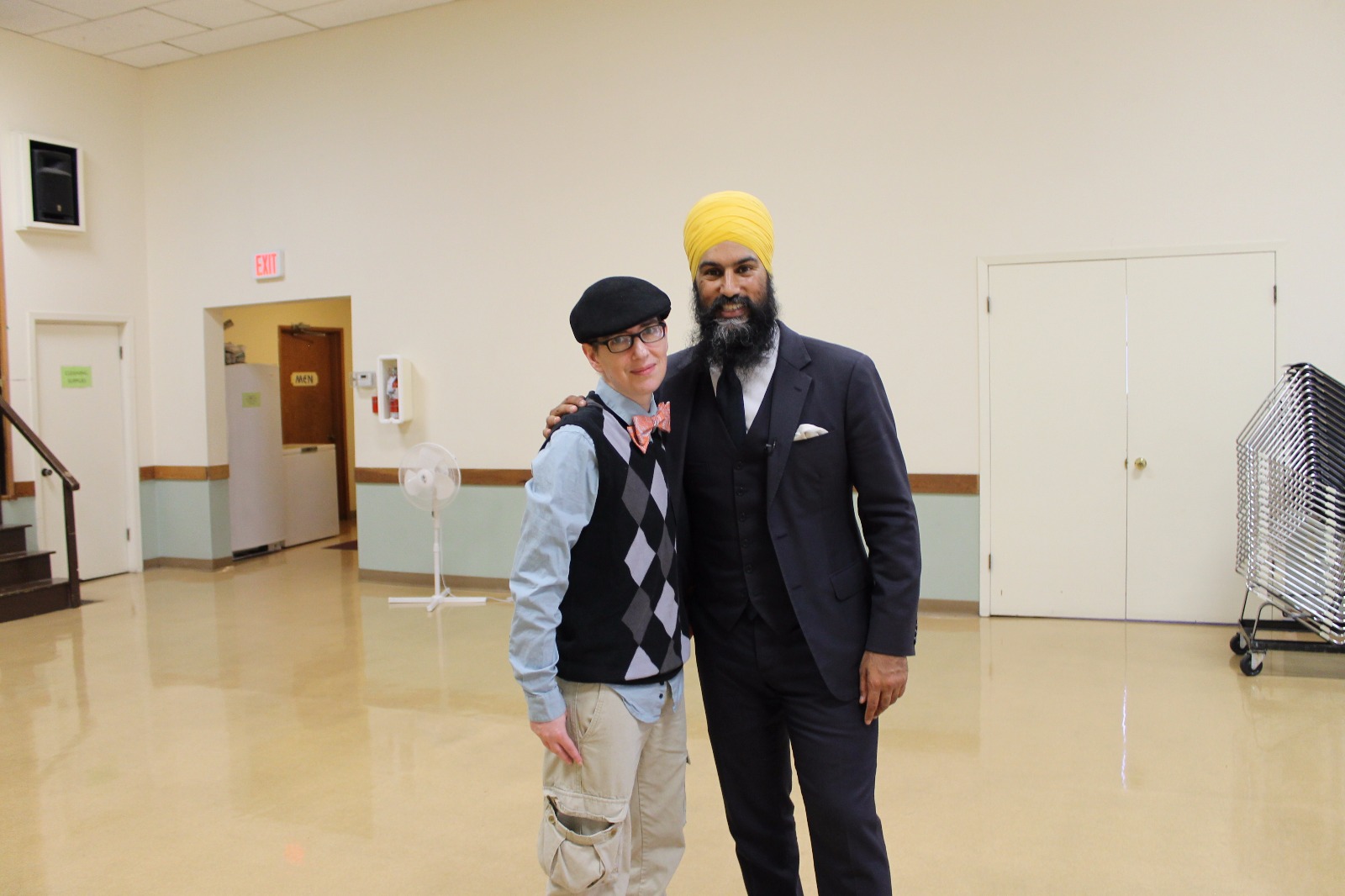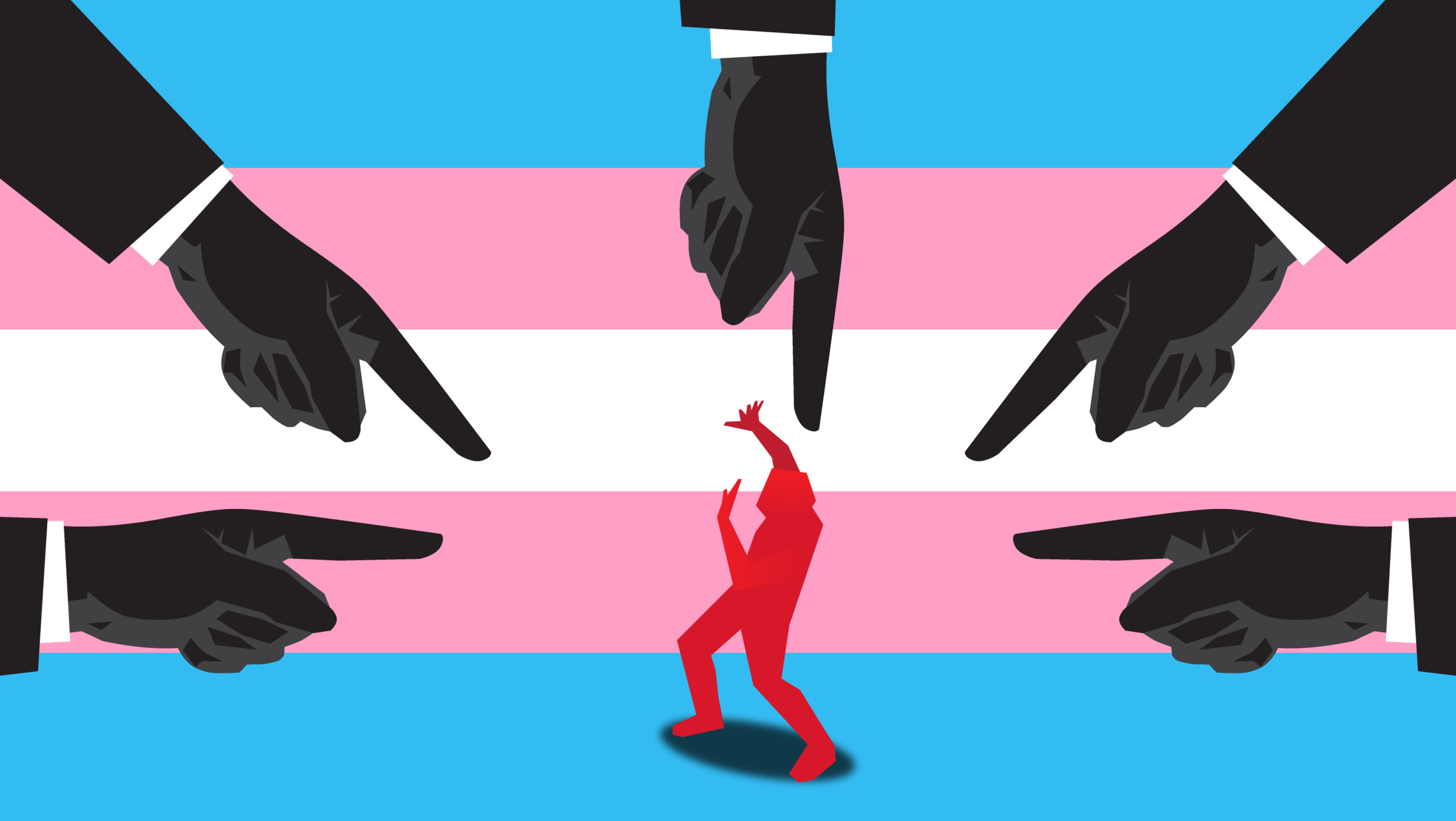When Jules Sherred took the position as campaign manager for BC MP Alistair MacGregor last month, he knew it wouldn’t be easy. Even though the 43-year-old trans and gay man had spent months before the election call writing new LGBTQ2-inclusive policies for Jagmeet Singh’s NDP, he expected to face routine transphobia and homophobia on the trail. He knew that a few pro-queer and -trans changes on paper could not extinguish systemic discrimination.
In fact, Sherred says, that discrimination is, in part, why he took the job: to be a visible representative for his communities even if he wasn’t the face of the campaign.
Xtra spoke with Sherred from his BC home about the coming election, better LGBTQ2 representation in politics and overcoming transphobia and homophobia on the job.
What led you to a career in politics?
I grew up in the United Church here in the Cowichan Valley of southern BC, and while it was a progressive space, I still faced a lot of systemic transphobia when I was young and coming out. I felt the same way with the NDP — for years, they had gay champions, but they had no place in the party for trans people. Four years ago, there was no way I would’ve been a campaign manager for the party as a trans person.
Then Jagmeet Singh came along. He was the first NDP leader who, because of his own marginalization [as a Sikh man of colour] growing up, said, “Enough is enough. The first thing I’m going to do as leader is work to undo all of the systematic discrimination in this party.” I was an outspoken activist and Singh’s team wanted to hear from the community. So I decided to work on his leadership campaign [in 2017], and I helped write his LGBTQ2 policies. I also helped write portions on gender violence and LGBTQ2 issues in the current NDP platform.
Eventually, MacGregor invited me on as his campaign manager. He’s one of the few allies who wants to learn from his mistakes — and I’m teaching him a lot about our communities.
When you started on MacGregor’s campaign, did you expect to encounter a lot of homophobia and transphobia?
Absolutely. For the past 12 years, I’ve experienced harassment because of who I am [as a visible trans activist, both online and in my community]. I’d been doxxed so many times the RCMP has a file on me. People constantly sent me death threats. I knew what to expect.
When I started my job with MacGregor, one of the first things we did was write a press release about my role in the campaign that mentioned that I’m disabled, trans, gay and autistic to get ahead of what I knew we would be facing, and to make sure that media talking to me wouldn’t misgender me and would be respectful. We had to get in front of it with the community.
But even then, nearly every single day, I get hate mail to the campaign — people saying to [MacGregor], “I’m not going to vote for you because you have a tranny working on your campaign,” or “I’m not going to vote for you because of you standing up for fags and trannies.” Folks misgender me every day. We even had someone smear feces on the back of the campaign office door.

Campaign manager Jules Sherred with NDP leader Jagmeet Singh. Credit: Courtesy Jules Sherred
I know that the campaign has just officially started, but there’s already been a lot of unofficial campaigning. What has the last month been like for you on the trail and preparing for this campaign?
It’s been really mixed. I get a lot of people who are queer thanking me for putting my own personal safety in jeopardy so that they can feel safer to work and exist within the party. I know it shouldn’t be our job to knock down these barriers, but unfortunately a lot of the burden gets put on us because allies don’t really know what they’re supposed to be doing for us.
What do you think it will take to start eradicating this kind of discrimination in party politics?
There’s so much systematic stuff that the government can tackle tomorrow — from eliminating fees to legally transition, like changing your birth certificate or health card, to better training in working with trans folks in healthcare, to better access to abortion for trans folks and on and on. Those things can be done, and then society will come along eventually — just like it did with gay marriage. When it was legalized, most Canadians did not support it. And now 75 percent of Canadians do. The systematic actions have to come first. There has to be someone who sets an example.
Those examples might be harder to set these days, given the proliferation of populism and the Trumpian era we’re living in.
Definitely. We see it with Singh all the time — people leave comments on MacGregor’s Facebook page about how they’re voting for their MP and not the party this election because our party leader is a Sikh man. Every time I send out a correspondence from the campaign to our mailing lists, there’s always either a racist comment or a homophobic or transphobic comment. We pride ourselves on being a pluralistic country — but then we’re very racist and sexist and homophobic and transphobic.
From day one, I’ve been telling our people that this campaign is going to be like none they’ve ever experienced. It’s going to be hard. And everyone kept saying, “We know, we’ve run hard campaigns before. This riding is always neck-in-neck between the Conservatives and the NDP.” I’m like, “No I’m not talking about that kind of hard. I’m not talking about a close race. I’m talking about people who are going to come into the office yelling transphobic and homophobic stuff. I’m talking about hate.”
There will be people reading this who wonder why, if you are being harassed, you continue to do this work and be vocal about it. What’s keeping you going?
Honestly, some people don’t even know trans men exist — so somebody like me has to be in this position. Erasure is violence and that needs to stop.
I also want to create visibility for young trans people. I don’t want another trans youth to die because they don’t see themselves in the world. I don’t do it for myself; I do it for the people coming after me.
If you’re experiencing this, how might a trans candidate — someone who is the face of a campaign — be able to run for office?
People ask me all the time why I’m not running, why I’m putting myself out there for another candidate. It’s because I’d never win. My riding, where there is plenty of social conservatism, is not ready for that. There need to be politicians like MacGregor who are willing to fight for me, who are willing to go to bat for me, because he holds weight. We need allies who know when to step up for us.
There are small things — we’ve made it policy for everyone, including cis folks, to have their pronouns on their nametags to avoid misgendering, for instance. But the process of putting new policies in place is unfortunately slow. Maybe by the next election we will see more progress — I mean, I wouldn’t have been here four years ago, so maybe in the next four years things will be even better. We’re getting there.
That’s an optimistic take.
It is! But I feel hopeful, and I didn’t feel this way four years ago. It’s not perfect — and, really, it never is — but we’re having these hard conversations, and I think we can only move ahead from here.


 Why you can trust Xtra
Why you can trust Xtra


